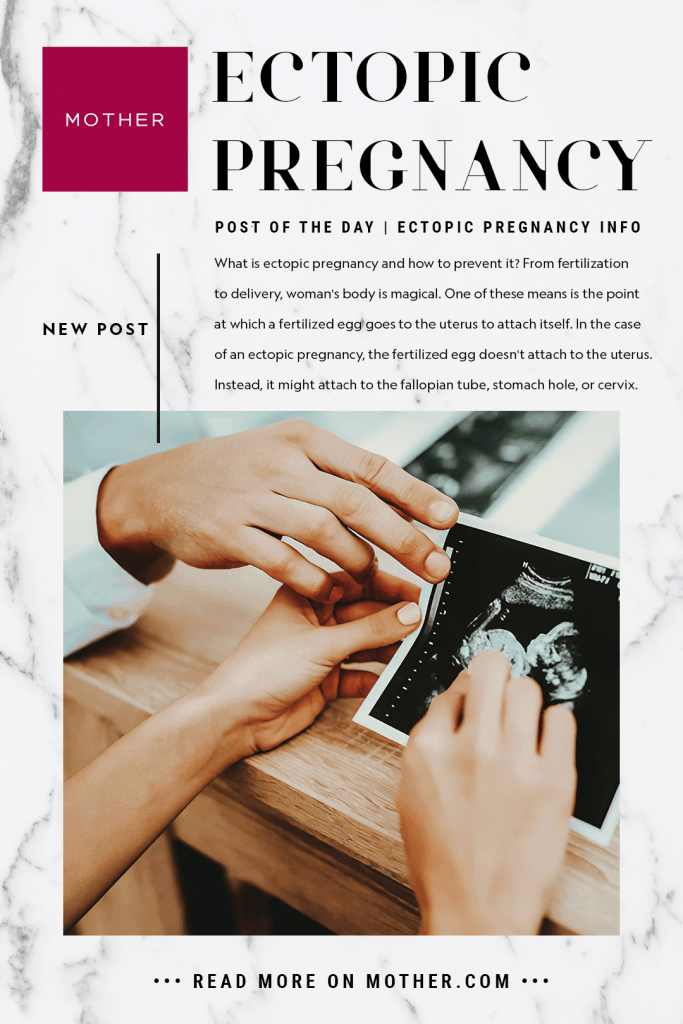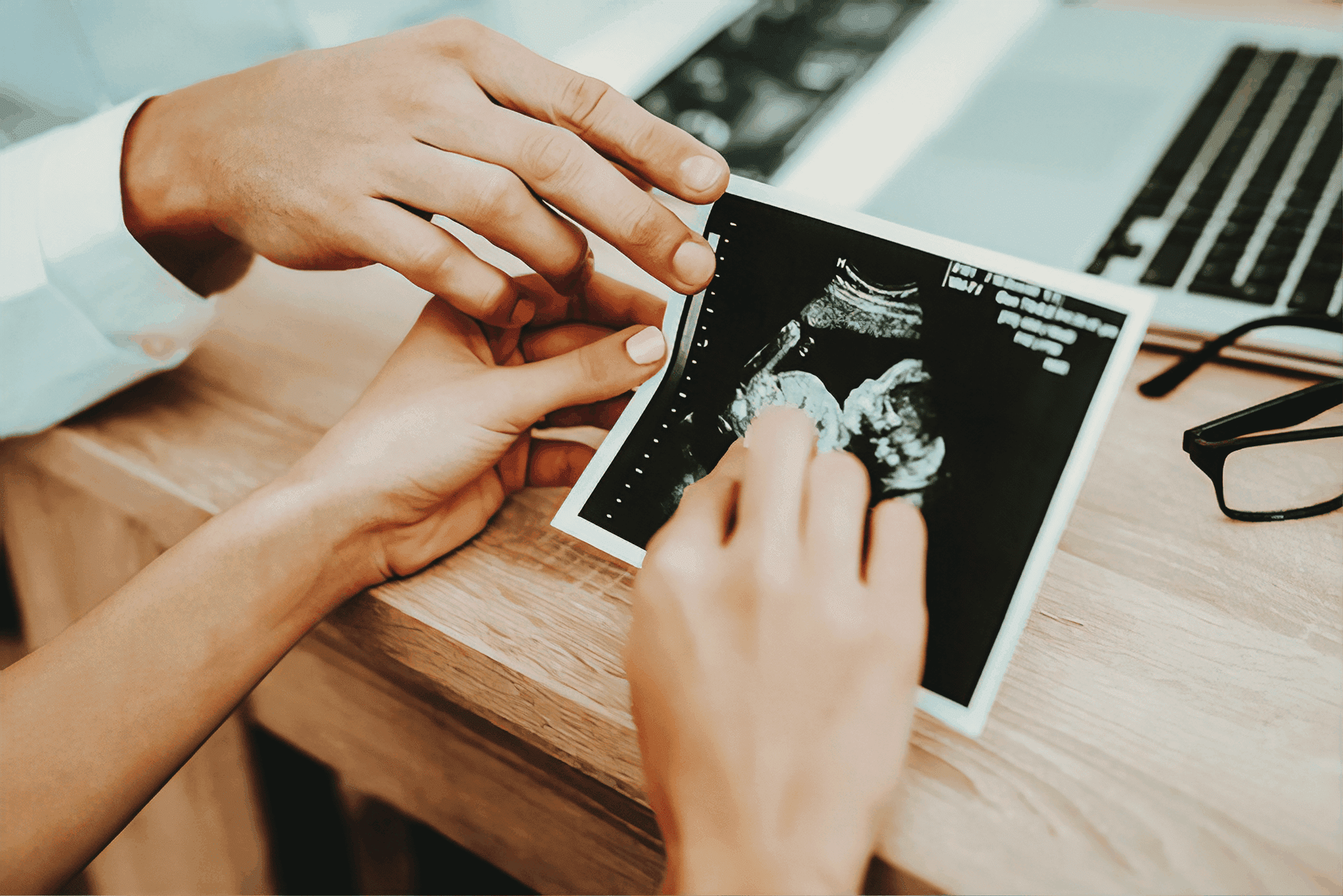Ectopic Pregnancy Information | Symptoms & Causes
An ectopic pregnancy occurs when a fertilized egg attaches outside of the uterus. It usually attaches to a fallopian tube but may also attach to the stomach or other abdominal organs or the cervix. There is no way to prevent an ectopic pregnancy. While a pregnancy test may uncover a woman is pregnant, the fertilized egg cannot grow properly anywhere other than the uterus.
Therefore, an ectopic pregnancy that goes untreated is a health emergency. Immediate treatment decreases the danger of complications from the ectopic pregnancy, increases the odds for future healthy pregnancies, and lessens future health complications.
Women who are diagnosed with an ectopic pregnancy, regardless of their age or any other factors, must immediately consult their obstetrician. They have a high-risk pregnancy that has a higher risk of complications than would be expected for the patient’s age and general health.
How Ectopic Pregnancy Happens?
An ectopic pregnancy happens when a fertilized egg implants outside of the uterus. The most common site is a fallopian tube, the structure that carries an egg from an ovary to the uterus. This is known as a tubal pregnancy. The fallopian tube may have been damaged by inflammation, causing it to be misshapen and block the egg from moving through it.
A hormonal imbalance or slowed passage because a fertilized egg is further developed than normal likewise may play a role.
Ectopic pregnancies can happen in other parts of the body, as well, such as the ovary, stomach pit, or cervix.
An ectopic pregnancy cannot continue normally. The fertilized egg cannot survive, and the growing tissue may cause life-threatening bleeding if left untreated.
Ectopic Pregnancy Symptoms
Some women with an ectopic pregnancy have the typical early signs or symptoms of pregnancy, such as a missed period, breast tenderness, and nausea. On a pregnancy test, the outcome will be positive.
Signs and symptoms of pregnancy may continue as the fertilized egg develops, even though it is in a location that cannot support life.
Frequently, the first warning sign of an ectopic pregnancy is pelvic pain. Light vaginal bleeding may likewise happen.
If the fallopian tube begins to bleed, the woman may feel stomach pain, a desire to have a bowel movement, or pelvic distress. If heavy bleeding (hemorrhaging) occurs, she may feel shoulder pain as blood fills the pelvis and abdomen. The specific symptoms depend on where the blood collects and which nerves are irritated.

Emergency Symptoms of Ectopic Pregnancy
If the fertilized egg continues to develop in the fallopian tube, the tube will rupture and heavy bleeding will result into the abdominal cavity. Symptoms of this dangerous event are fainting, extreme stomach pain, and shock.
How To Prevent Ectopic Pregnancy? | Treating an Ectopic Pregnancy
Seeking emergency medical help is vital for someone with the signs and symptoms of an ectopic pregnancy.
• Extreme light-headedness or fainting
• Severe abdominal or pelvic pain
• Abnormal vaginal bleeding
• Other concerning symptoms, especially if you have risk factors for an ectopic pregnancy
Risk Factors for Ectopic Pregnancy
Some conditions that make an ectopic pregnancy more likely are
• Previous ectopic pregnancy
• Inflammation or infections, such as the sexually transmitted infections gonorrhea and chlamydial infection, can cause inflammation in the tube and other nearby organs, increasing the danger of an ectopic pregnancy.
• Fertility treatments such as in vitro fertilization may lead to an ectopic pregnancy. Women who have been thought to be infertile may likewise have an increased risk.
• Tubal surgery to address a closed or damaged fallopian tube can increase the danger of an ectopic pregnancy.
• Intrauterine device or tubal ligation. The possibility of getting pregnant while an intrauterine device is in place is small, but if pregnancy occurs it is very likely to be an ectopic pregnancy. If a woman becomes pregnant after having a tubal ligation (generally known as “having your tubes tied”), which is a form of usually permanent birth control, the pregnancy is likely to be an ectopic one.
• Smoking. Cigarette smoking before a woman gets pregnant can expand the danger of an ectopic pregnancy. The more someone smokes, the greater the risk.
All sexually active women are at some risk for an ectopic pregnancy. Risk factors increase with any of the following factors:
• Maternal age of 35 years or older
• History of pelvic inflammatory disease
• History of pelvic surgery, abdominal surgery, or multiple abortions
• History of smoking
• Conception occurred despite a past tubal ligation or the use of an intrauterine device
• History of endometriosis
• Presence of structural abnormalities in the fallopian tubes that make it hard for eggs to travel through them
• Past ectopic pregnancy
• Conception aided by fertility drugs or procedures
• History of sexually transmitted diseases such as gonorrhea or chlamydial infection
If you have any of the above risk factors, talk to your doctor. You can work with your doctor or a fertility specialist to minimize the risks for future ectopic pregnancies.
There is no way to prevent an ectopic pregnancy, but here are some ways to decrease your risk:
• Limit your number of sexual partners.
• Always use a condom during sex to help prevent sexually transmitted infections and reduce your risk of pelvic inflammatory disease.
• Don’t smoke. If you do, quit before you try to get pregnant.
Diagnosing and Treating an Ectopic Pregnancy
• If you suspect you have an ectopic pregnancy, see your primary care physician or doctor right away. Ectopic pregnancies cannot be diagnosed by a physical test. However, your doctor may be able to rule one out based on other factors.
• Transvaginal ultrasound allows the doctor to see whether a gestational sac is in the uterus.
• Your doctor may do a blood test to determine your levels of hCG and progesterone, hormones that are present during pregnancy. If the levels begin to fall or remain the same for a few days and a gestational sac is not seen in an ultrasound image, the pregnancy is likely ectopic.
• If you are having severe symptoms, such as significant pain or bleeding, there may not be enough time for any diagnostic steps. The fallopian tube ruptures in extreme cases, causing severe internal bleeding. Your doctor will then perform emergency surgery to provide immediate treatment.
Ectopic Pregnancy Information Video
Medical Disclaimer
The information contained in this post is for general information purposes only.
Ectopic Pregnancy | How To Prevent Ectopic Pregnancy? is not intended to be a substitute for professional medical advice, diagnosis, or treatment. Always seek the advice of your physician or another qualified health provider with any questions you may have regarding a medical condition.

